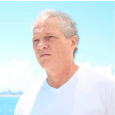What do you make of the major changes in Argentina, particularly in the investment world and recent financial reforms?
The changes underway in Argentina are fundamental—what we're seeing is not a mild correction, but a 180-degree pivot from over a century of mismanagement. President Milei has initiated reforms with a clarity and urgency not seen in past administrations. This is more than economic adjustment; it's a full reset of priorities and ideology.
Argentina has tremendous potential—rich in natural resources, filled with creative, capable people—but has long lacked common sense in policy-making. For decades, we bought into a populist narrative that ultimately failed, as evidenced by a poverty rate nearing 60%. This time, it feels different. The population has reached a breaking point and voted for radical, liberal economic reform. The president and his economic team are implementing these changes with competence and conviction.
How do you view the work of the current economic team compared to previous governments?
Milei’s team, especially Toto Caputo and his advisors, are executing a plan with technical precision and the benefit of historical lessons. Unlike the Macri administration, which attempted a gradual approach and faltered, Milei faced a single viable path—shock reform. The country's economic situation left no room for half-measures.
This lack of alternatives has become a source of strength. With no room to manoeuvre, decisive action was inevitable. That clarity of purpose is translating into tangible results: inflation is dropping, economic activity is picking up, and public support is consolidating. It's reminiscent of the Menem years, where defeating inflation brought about a wave of popular backing.
Do you think this marks a cultural shift among Argentinians?
Absolutely. The choice of a liberal president, one who openly campaigned to shrink the state, signifies a cultural awakening. People are tired of broken promises and inefficient public spending. This shift is particularly visible among younger generations who’ve grown up amid economic instability and now demand something different.
Milei isn't just reordering the macroeconomy; he's also waging a cultural battle. He's reframing the economic conversation and exposing the failures of populist policies. The shift isn't just political—it’s ideological. And that matters deeply for long-term change.
Recent volatility and changes in currency regimes have had an impact. How do you interpret these movements?
The volatility is expected when you change the rules of the game. We’ve seen capital outflows, anticipatory imports, and hesitant exporters—all typical of regime shifts. But now that there's clarity, exporters will re-enter, and importers have already front-loaded purchases.
We're likely moving toward a more stable exchange band, between a high of 1,400 pesos and a low of 1,000. It's not a fixed exchange rate, but a managed float with built-in flexibility. This system limits inflationary pressures while avoiding the trap of over-regulation.
What impact will the reconstitution of Central Bank reserves have on markets?
It’s immensely positive. With IMF and World Bank support, Central Bank reserves could approach $50 billion. That resolves a major uncertainty—whether Argentina can meet its obligations. Now, with reserves in place and a fiscal surplus in sight, that question is answered.
As risk premiums fall, bonds and equities become more attractive. The elimination of the "cepo" (currency controls) is critical—it signals Argentina’s return to normalcy and opens the door for both local and international investment.
So trust is starting to rebuild, but history weighs heavily. How do you see that trust evolving?
Trust takes time. We've burned investors too many times—from the Bonex plan in '89 to the 2001 default. Even during Macri's tenure, expectations were high, but we reverted to old habits. So investors remain cautious.
Still, each successful reform helps. Falling inflation, a stabilising currency, and consistent policy execution are laying the groundwork. We need sustained good behaviour over time. It's like earning back credibility in school—you can’t skip the hard work.
And how important is cultural change in that process?
It's essential. We’ve been told for decades that the state will take care of everything. That mindset must change. Milei is attacking this head-on, emphasising fiscal responsibility across all levels of government. He’s challenging the narrative that the state should do everything.
His symbolic “chainsaw” approach—cutting public spending—has made global headlines. But beyond the theatrics, there’s substance: deregulation, institutional reform, and a new role for the private sector. It’s what makes this effort different.
Could Argentina become a model for reform globally?
It already is, in some ways. When Milei was in Davos recently, people were intrigued about an Argentine president lecturing the West on fiscal discipline. But it resonated—because our crisis is a cautionary tale.
Many Western countries are running deficits of 7% or more. The U.S. is at over 100% debt-to-GDP. What Milei is doing—achieving a fiscal surplus within months—is not only possible, it's necessary. And other nations are watching.
Where is Balanz positioned in all of this?
Balanz was created in 2002, right after the crisis. We saw opportunity in chaos. Over time, we’ve evolved into a full InvestTech platform—spanning investment banking to wealth management—serving individuals and institutions.
We’re not a fintech; we’re an investment tech company. Our advantage is rooted in technology and customer experience. We built our own platform from the ground up, always putting the client first. That approach is what’s enabled us to scale.
We pioneered the idea of an investment account separate from banking. Banks are for payments and loans—we're for investment. Our mission is to help clients invest better, build wealth, and access local and global markets seamlessly. We also created Balanz University to train our advisors—ensuring deep financial knowledge and a superior client experience. We now serve thousands of individuals and institutions, both locally and abroad, with offices in Argentina, the UK, the US, and Uruguay.
How do you view Argentina’s investment appeal to foreign investors today?
We’re seeing early interest, but it's cautious. The 1990s were different—globalisation was booming and foreign banks rushed in. Today, the world is more fragmented. Investors want proof that Argentina can stay the course.
Still, baby steps are being taken. As credibility builds, so will interest. Meanwhile, markets like Uruguay are booming, growing at 350% and becoming regional hubs. We’re fully operational there, mirroring our Argentine offering.
And how is Balanz positioned in capital markets and corporate services?
We’ve built a strong advisory and capital markets team, working with nearly all of Argentina’s major corporate issuers. In 2023, we held a 14% market share in local debt issuance, second only to Galicia.
That gives us unique insight into companies’ management and fundamentals, allowing us to offer informed investment recommendations to our clients. We bridge capital-seeking companies with investors looking for sound opportunities.
What sets Balanz apart at a deeper, cultural level?
It’s our focus on client service, talent, and excellence. From day one, I invested in top-tier technology and built a team committed to being the best. We now have over 1,400 people, and our internal university ensures continual development.
We operate as a full-service firm across all client types—individual, corporate, institutional—and we specialise in advisory, M&A, and project finance. As Argentina normalises, we’re ready to support the next wave of investment activity.
Any closing thoughts on Argentina’s trajectory?
I believe there’s a high probability of Milei securing a second term, and that would solidify Argentina’s return to common sense. But the cultural battle is just as critical. Investors need confidence that this isn’t another temporary shift.
If Argentina can maintain direction, the upside is enormous. Our assets are undervalued, and our human capital is extraordinary. With trust restored and institutions improved, the future could be remarkably bright.





